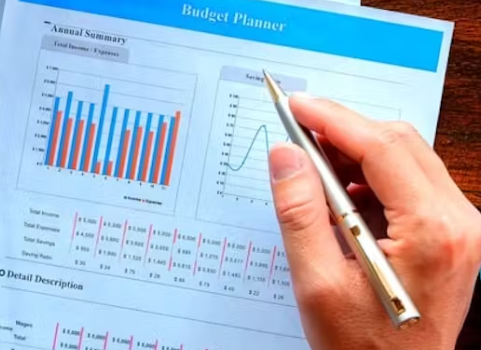
More and more people are choosing to rent their homes long-term rather than buying, and you’re not alone if this is your situation. In fact, a recent survey revealed that 33% of Canadians are renters. What was once considered a temporary arrangement has become a long-term reality for many. While renting offers flexibility, it also presents unique financial challenges. To help you manage your finances effectively, here are some practical budgeting tips for long-term renters.
Understand Your Total Housing Costs
Renting a home involves more than just paying the monthly rent. To create a realistic budget, you need to factor in other housing-related expenses that aren’t always included in the rent. Utilities such as electricity, water, gas, and internet may come with additional costs. If you’re not budgeting for these, you could find yourself short at the end of the month. Also, tenant’s insurance, which protects your belongings in case of damage or theft, is often a requirement by landlords. Including all of these expenses will help you get a clearer picture of your finances.
Craft a Clear Monthly Budget
Once you know your total expenses, it’s time to build a budget. A well-organized budget helps you plan for upcoming costs and ensures you don’t overspend. You don’t need a fancy system – just follow these basic steps to get started:
- Account for Your Income: Don’t forget about additional sources of income, such as side jobs, freelance work, or government benefits.
- List Your Expenses: Start by listing your rent and utility costs. Then, add other fixed expenses like groceries, transportation, medical bills, debt payments, savings contributions, and childcare if applicable. Lastly, include flexible expenses such as clothing, entertainment, and dining out.
- Choose a Budgeting Method: Whether you prefer using budgeting apps, spreadsheets, or pen and paper, pick the method that you will stick with.
- Adjust as Needed: Don’t be afraid to tweak your budget regularly. If your spending exceeds your income, make adjustments by cutting back in areas where you can. Revisit your budget whenever your financial situation changes, such as a new job or family circumstance.
How to Keep Rent Affordable
Housing can take up a significant portion of your income, and it’s important to explore ways to reduce your rental costs if possible. Here are some ideas to keep your rent more manageable:
- Negotiate Your Rent: If you’ve been a responsible tenant, you might be able to discuss rent adjustments with your landlord, especially as your lease renewal approaches. In some cases, landlords may offer you a lower rent or a different unit at a reduced price, especially if you’re willing to help with maintenance tasks.
- Consider Moving to a More Affordable Area: Rent prices can differ greatly depending on where you live. If you have a flexible job or can work remotely, consider moving to a less expensive area, even if it means moving away from a city center. Just be sure to account for moving costs when making this decision.
- Look for Rent Control or Stabilization: In certain regions, rent control laws prevent significant rent hikes. If you’re struggling to meet rent payments, consider looking for housing under rent control programs, which can offer more predictable costs.
- Pay Rent According to Your Pay Schedule: If paying rent at the beginning of the month feels difficult, talk to your landlord about adjusting the payment schedule to align with your income. This can make it easier to plan and budget effectively.
Cut Costs in Other Areas
If you’re trying to stretch your rental budget, it’s worth looking for ways to cut back on other expenses. Small changes can add up to significant savings over time. Consider the following:
- Review Your Cell Phone and Internet Plans: Are you paying for services you don’t need? Check if your current plan still fits your needs or if you can downgrade to a more affordable option.
- Negotiate with Service Providers: Many service providers offer deals that aren’t advertised. Don’t hesitate to reach out and ask for a better rate or package.
- Use Public Transportation: If your location allows, consider using public transportation instead of owning a car. Not only will this save you on gas and insurance, but you’ll also avoid the maintenance costs that come with car ownership.
- Take Advantage of Free Activities: Explore free events in your area, or take part in outdoor activities that cost nothing. Even skipping a gym membership and using free or low-cost fitness options can save you hundreds of dollars annually.
Start an Emergency Fund
As a renter, you still need to be prepared for unexpected expenses, such as repairing damage to your rental property or covering costs if you need to move unexpectedly. Having an emergency fund will help you cover these unplanned costs without going into debt. A good rule of thumb is to save three to six months’ worth of living expenses, but if this seems daunting, start small. Set aside whatever you can and work your way up to a more substantial emergency fund.
Final Thoughts
Renting long-term comes with its own set of financial challenges, but with the right budgeting strategies in place, you can make your rental situation work for you. By understanding all of your housing costs, tracking your spending, and finding ways to reduce expenses, you can manage your finances effectively and avoid financial stress. With these tips, you’ll be well on your way to staying on top of your finances as a long-term renter.









